
Jamesetta Hawkins, known professionally as Etta James, was an American singer who performed in various genres, including blues, R&B, soul, rock and roll, jazz, and gospel. Starting her career in 1954, she gained fame with hits such as "The Wallflower", "At Last", "Tell Mama", "Something's Got a Hold on Me", and "I'd Rather Go Blind". She faced a number of personal problems, including heroin addiction, severe physical abuse, and incarceration, before making a musical comeback in the late 1980s with the album Seven Year Itch.

Let It Bleed is the 8th British and 10th American studio album by the English rock band the Rolling Stones, released on 28 November 1969 London Records in the United States and shortly thereafter by Decca Records in the United Kingdom. Released shortly after the band's 1969 American Tour, it is the follow-up to 1968's Beggars Banquet. As with Beggars Banquet, the album marks a return to the group's more blues-sound approach that was prominent in the pre-Aftermath period of their career. Additional sounds on the album draw influence from gospel, country blues and country rock.
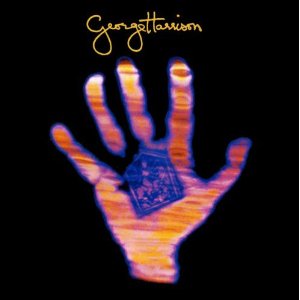
Living in the Material World is the fourth studio album by English musician George Harrison, released in 1973 on Apple Records. As the follow-up to 1970's critically acclaimed All Things Must Pass and his pioneering charity project, the Concert for Bangladesh, it was among the most highly anticipated releases of that year. The album was certified gold by the Recording Industry Association of America two days after release, on its way to becoming Harrison's second number 1 album in the United States, and produced the international hit "Give Me Love ". It also topped albums charts in Canada and Australia, and reached number 2 in Britain.

"I Want You" is a song written by songwriters Leon Ware and Arthur "T-Boy" Ross and performed by singer Marvin Gaye. It was released as a single in 1976 on his fourteenth studio album of the same name on the Tamla label. The song introduced a change in musical styles for Gaye, who before then had been recording songs with a funk edge. Songs such as this gave him a disco audience thanks to Ware, who produced the song alongside Gaye.
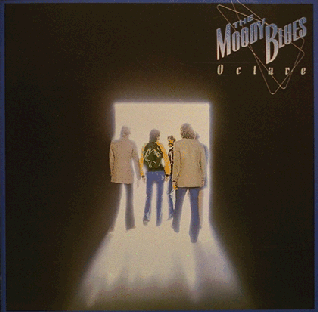
Octave is the ninth album by The Moody Blues, released in 1978, and their first release after a substantial hiatus following the success of the best-selling Seventh Sojourn in 1972. The album proved to be the last for the group with keyboardist Mike Pinder, who left during the album's sessions and declined an offer to tour with the group. He had just started a new family in California, and found that he was not getting along with his bandmates as he previously had. Pinder would be replaced by former Yes keyboardist Patrick Moraz in time for their 1978-1979 tour, beginning a new era in the band's history. Octave would also be the final studio album from the band produced by Tony Clarke.

"You Send Me" is a song written and originally recorded by American singer Sam Cooke, released as a single in 1957 by Keen Records. Produced by Bumps Blackwell and arranged and conducted by René Hall. The song, Cooke's debut single, was a massive commercial success, becoming a No. 1 hit on both Billboard's Rhythm & Blues Records chart and the Billboard Hot 100.
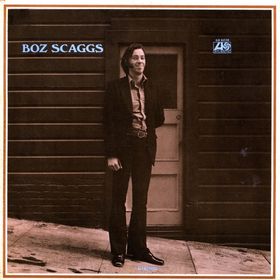
Boz Scaggs is the second studio album by American musician Boz Scaggs, released in 1969 by Atlantic Records. A stylistically diverse album, Boz Scaggs incorporates several genres, including Americana, blue-eyed soul, country, and rhythm and blues. The lyrics are about typical themes found in blues songs, such as love, regret, guilt, and loss. Scaggs recorded the album at Muscle Shoals Sound Studio with producer Jann Wenner, the co-founder of Rolling Stone magazine. The Muscle Shoals Rhythm Section heavily contributed to the album, which included a young Duane Allman, before his rise to fame with the Allman Brothers Band.
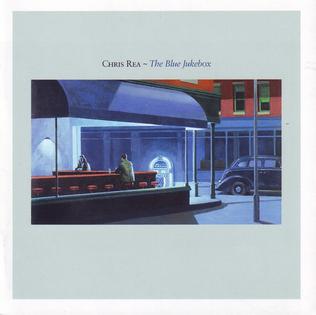
The Blue Jukebox is the twentieth studio album by British singer-songwriter Chris Rea, released in 2004 by his independent record label Jazzee Blue. The cover artwork is inspired by Edward Hopper's Nighthawks painting. Compared to the Dancing Down the Stony Road (2002) has a smoother and jazzier take on the blues.
The LoveCrave is an Italian gothic metal band from Milan. The LoveCrave means "Hundredth Rave of Love". This name was taken from a story about a rave of vampires written by Francesca Chiara in 2003.
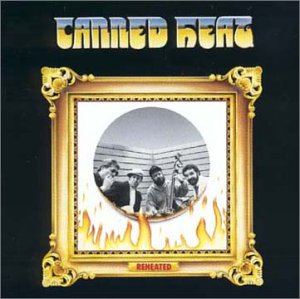
Reheated is the twelfth album by Canned Heat, released in 1988. It features two members of the band's classic lineup, Fito de la Parra and Larry Taylor. Among the titles, "Bullfrog Blues" was originally on the B-side of the first single recorded by Canned Heat in 1967; "Built for Comfort" by Willie Dixon was popularized by Howlin' Wolf; "Take Me to the River" is a R&B/soul song which has been recorded by artists such as Al Green and Talking Heads.
Let's Roll is the twenty-sixth studio album by Etta James. It won a Grammy Award for Best Contemporary Blues Album in 2003, and also won a W. C. Handy Award as the Soul/Blues Album of the Year from the Blues Foundation in 2004.

Stephen Dale Petit is an American-born guitarist, singer, songwriter and New Blues musician.

"The Sky Is Crying" is a blues standard written and initially recorded by Elmore James in 1959. Called "one of his most durable compositions", "The Sky Is Crying" became a R&B record chart hit and has been interpreted and recorded by numerous artists.

Arthur Adams is an American blues guitarist from Medon, Tennessee. Inspired by B.B. King and other 1950s artists, he played gospel music before attending college. He moved to Los Angeles, and during the 1960s and 1970s he released solo albums and worked as a session musician. In 1985 he was tapped to tour on bass guitar with Nina Simone, and he staged a comeback in the 1990s when he released Back on Track, and became a respected Chicago blues player and bandleader in B.B. King's clubs.

Guitararama is the first studio album by Stephen Dale Petit released on 2 June 2008. The album was both inspired and funded by Petit's time spent performing as part of the Licensed Busking scheme on the London Underground in 2003.

The Record Company is an American rock band from Los Angeles. The members are Chris Vos, Alex Stiff, and Marc Cazorla. Their music is influenced by blues musicians like John Lee Hooker, early punk bands like The Stooges, and rock bands like The Rolling Stones. Their sound incorporates slide guitar, distorted bass, a Ludwig drum kit and the vocals of Chris Vos.

Cracking the Code is the third studio album by Stephen Dale Petit, released on 15 September 2013 and recorded primarily at Blackbird Studios in Nashville. It was recorded by Grammy award-winning producer Vance Powell and consists of eleven original songs. The album features appearances from several notable guests including Howlin’ Wolf guitarist Hubert Sumlin, Dr. John, former Rolling Stones guitarist Mick Taylor and Patrick Carney of The Black Keys. Hubert Sumlin's contribution proved to be the last music he made prior to his death on 4 December 2011.

Stephen Dale Petit At High Voltage is a live album by Stephen Dale Petit released on 15 March 2015. The performance was recorded at London's High Voltage Festival in 2010 by the Ronnie Lane Mobile Recording Unit.

The BBC Sessions is the third album by Stephen Dale Petit, released on 5 December 2011, and is a compilation of specially commissioned BBC live recordings broadcast on BBC Radio 2’s Bob Harris and Paul Jones shows. Released in response to growing demand from Radio 2 listeners, the album features live versions of Petit’s own material as well as homages to staple songs within the blues genre. Covers include versions of John Mayall & The Bluesbreakers’ "Steppin’ Out", Albert King’s "When The Years Go Passing By" and Robert Johnson’s "Love In Vain". The album features guest appearances from former Rolling Stones guitarist Mick Taylor. The recordings took place at the BBC’s Studio 3 in Maida Vale, London and Bob Harris’ studio in the BBC's Radio 2 headquarters at Western House, London.

2020 Visions is the sixth album by Stephen Dale Petit, released digitally on 12 June 2020 and on vinyl and CD on 25 September 2020.


















